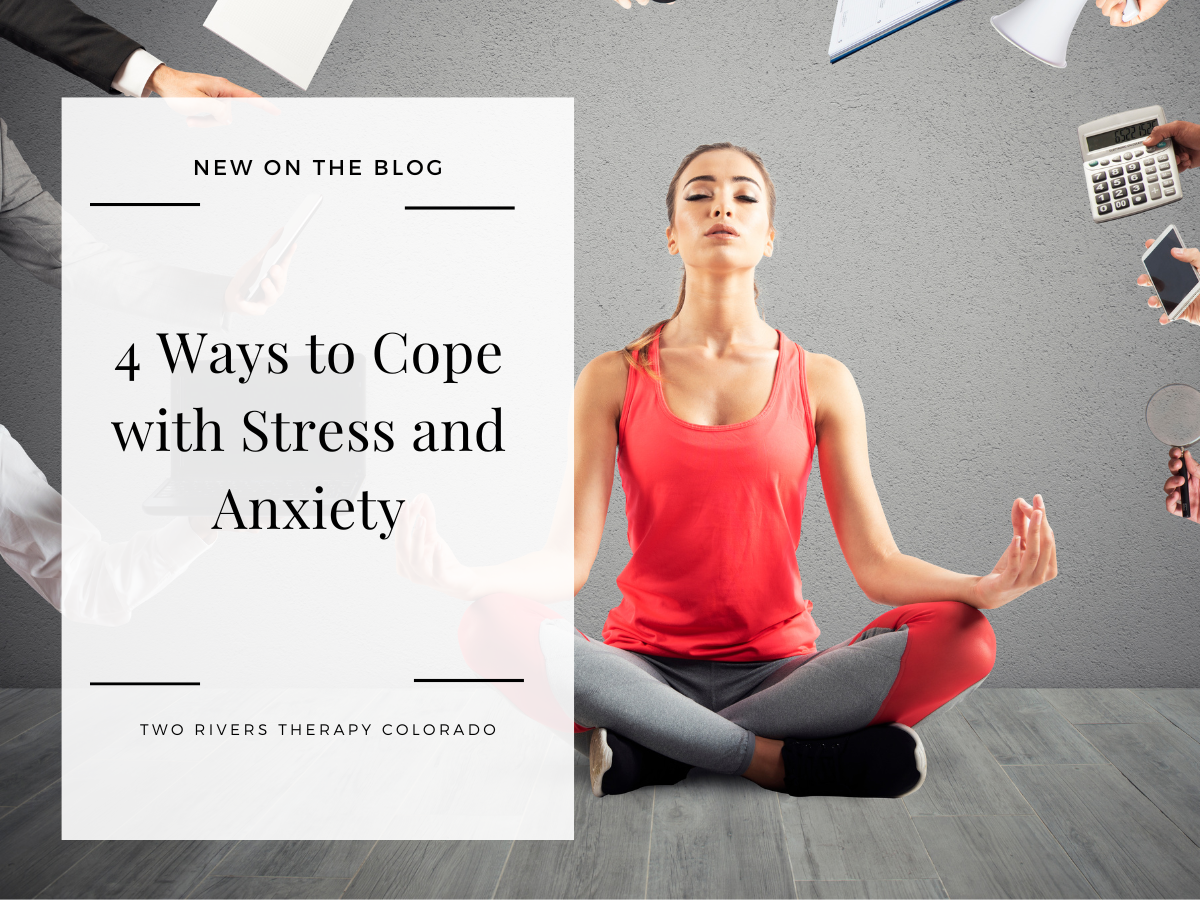Anxiety Therapy in Colorado
Find Peace at Two Rivers Therapy & Consulting
At Two Rivers Therapy & Consulting, we are dedicated to helping millennial women in Northern Colorado find relief from anxiety and reclaim their lives. Our compassionate team of experienced therapists provides personalized counseling services tailored to your unique needs.
We understand the challenges you face and are here to support you every step of the way. Imagine a life where anxiety no longer holds you back. It's a life of confidence, peace, and fulfillment. With our guidance, you can turn this dream into reality.
Empowering Northern Colorado
Anxiety can be overwhelming, affecting every aspect of your life. It can make daily tasks feel insurmountable, strain relationships, and hinder professional growth. Many millennial women in Fort Collins, Loveland, and Windsor struggle with these feelings, unsure where to turn for help.
You’re not alone.
At Two Rivers Therapy & Consulting, we understand your pain and are here to provide the support and strategies you need to overcome anxiety and build a brighter future.
Your Path to Healing Starts Here: Therapists Who Help
I'm Ann Robinson (she/her). I'm passionate about helping millennial women navigate the ups and downs of anxiety. With a master’s in social work and a knack for blending humor with healing, I make therapy feel like a conversation with a trusted friend. My eclectic approach draws from DBT & ACT, mindfulness, and EMDR to tailor the perfect strategy for each client.
When I'm not in the office, you can find me sipping on a dirty chai and losing myself in a good book—or catching up on Taylor Swift’s catalog (in an attempt) to stay relevant!
Hello! I'm Kristen Dingwall (she/her), a Licensed Clinical Social Worker with a zest for life and a deep commitment to helping women conquer anxiety. My therapeutic style is warm, interactive, and solution-focused, drawing on techniques from DBT and ACT to help you find balance and serenity. I believe in the power of self-compassion and resilience, and I'm here to guide you through your journey with empathy and a sprinkle of humor. Outside of sessions, I'm hiking the beautiful Colorado trails with my dog, Luna, or indulging in my go-to comfort show—Friends!
Hi! I'm Heather Madigan, a licensed clinical social worker. Whether you’re searching for purpose, identifying personal values and goals, or if the demands of modern day life have left you feeling anxious and unproductive, I know there is a way forward. I am committed to creating a space where we can explore the impact of past wounds and trauma, identity, values, and life transitions, and develop (and maintain) new skills that center your personal growth in the work.
Outside of the office, I can be found walking behind my two rescue dogs, Kota and Olive. I love to get lost in mystery and crime novels, take on too many DIY projects that are rarely completed, and camp during warm weather.
Common Signs of Anxiety
We all feel anxious sometimes; it’s a normal part of life. If your anxiety starts to impact your life and daily functioning, it can be a sign of an anxiety condition. When to seek support for anxiety
The symptoms of anxiety conditions can appear suddenly or develop slowly over time. This sometimes makes it hard to notice.
If you see these signs in yourself or someone close, we'll help you find the support you need.
What does anxiety feel like?
Anxious feelings usually go away in a short period of time. They might be connected to a stressful situation or event, such as a job interview, exam or moving house.
With an anxiety condition, the anxiety is more frequent or doesn’t go away. It’s not always connected to an obvious challenge, making it hard to complete everyday activities.
There are several different anxiety diagnoses, and each has its unique symptoms. We’ve listed some common symptoms on this page, which you can use as a guide.
A doctor, therapist, psychologist, or psychiatrist can assess whether you have an anxiety condition.
-
✔️ excessive fear
✔️ restless
✔️ tense, wound up, and edgy.
-
✔️ worrying
✔️ obsessive thinking
✔️ catastrophizing
(worst-case scenario thinking) -
✔️ panic attacks
✔️ hot and cold flashes
✔️ racing heart
✔️ tightening of the chest
✔️ quick breathing or shortness of breath
✔️ difficulty sleeping
✔️ headaches












